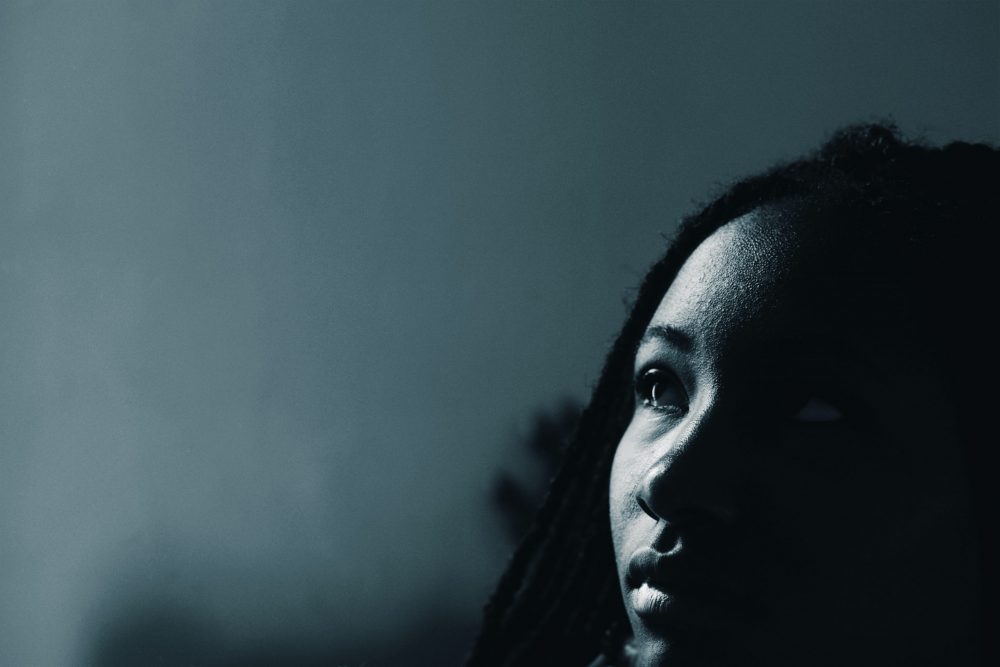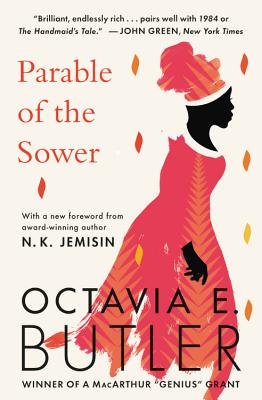COVID-19 and the Black Lives Matter protests across the U.S. and all over the world have drawn our attention to systems of inequality that sustain white supremacy, racism, and anti-Blackness as well as the wealth gap, lack of social security, and inefficient health and education systems. We are recognizing and naming injustices, but we also need to organize ourselves for collective action and sustainable community building. In their boundless wisdom, Black women like Octavia Butler have given us the blueprint. Butler’s Parable of the Sower is an excellent example of the work Black women have done to prepare us for this moment and the movement it is creating. Through her protagonist Lauren Olamina, Butler has been telling the world for decades that it was not going to last in its capitalist, racist, sexist, homophobic form for much longer. She showed us the way injustice would cause the earth to burn, and the importance of community building for survival and revolution. Through Parable of the Sower, we had a better future in our hands, but we did not listen.
Butler’s Parable of the Sower is an excellent example of the work Black women have done to prepare us for this moment and the movement it is creating.
Published in 1993, Parable of the Sower warned us of the effects of climate change, disease outbreaks beyond our control, and an egotistical white-wing president backed by racist religious fundamentalists. Still, we were not ready. This is an indictment on us and our failure to listen to Black women. It need not render us immobile, though; instead, it calls us to act. If we did not know before, it is now clear, through speeches, poetry, music, and works of fiction, that Black women are powerful beyond measure. This power is not limited to knowledge and foresight, but extends to our thinking and attention on the way forward that has already, at least in part, been charted for us.
Consider—
We are born
Not with purpose,
But with potential.
We meet Lauren Olamina as a teenager with a sense of knowing. She quietly rejects the religion of her father, a Baptist preacher and the religious leader in their community of less than two dozen families in the fictional city of Robledo, California. It quickly becomes clear that Lauren is not only a hyperempath, feeling the observable pain and pleasure of other people, but a thinker and a strategist with a deep understanding of risk assessment, timing, and holding knowledge until the appropriate time. She learns, at the behest of her parents, to control herself so that no one can detect her hyperempathy. At the hands of her own brothers, she experiences the danger of her vulnerability in much the same way that Black women experience pain and learn to protect and heal ourselves from pain inflicted upon us by our kin. We use the same skills to shield ourselves from a world intent on eradicating us.
Lauren spends time in deep thought and preparation. She knows the time will come when she will have to escape. She will need skills and supplies as a refugee. When her brother expresses his desire to leave, she tries to stop him, but she can’t make him understand timing. She is left to wait for news of his death. There is no celebration in the confirmation of her knowing because knowing is not the goal. Her vision is greater than her own exaltation and it is linked to the survival of her community so that it can one day thrive. She seeks liberation.
Through her observation of the world around her and her instinct, Lauren creates her own belief system—Earthseed. The scripture itself is about the changing nature of the god and, by extension, the world. It speaks to the power of the individual to affect change. Though it is never explicitly stated, it becomes clear that people—individually and in community—are god, shaping and reshaping the world through responses to what we have already created. It places responsibility on people themselves and calls on us to be attentive to our visions, understanding every decision as a move toward or away from it. Through it, Butler calls us to action.
All that you touch
You Change.
All that you Change
Changes you.
The only lasting truth
Is Change.
God
Is Change.
When the community is invaded and destroyed and most of the people murdered, Lauren is forced to leave. She scavenges with strangers in her own home for whatever might be of use and, when it is safe, unearths the stash she has prepared. The work of Black women—and girls—has always involved being hundreds of steps ahead, to see what is invisible, and to push past fear, grief, and exhaustion. This is what keeps Lauren alive and helps her to save others—another role Black women consistently hold. With the principles of Earthseed as her anchor, she embarks on a philosophical and physical journey toward a better world with societal destruction, violence, and crises of leadership at her heels.
The work of Black women—and girls—has always involved being hundreds of steps ahead.
Strong, highly skilled, armed, and androgynous, Lauren could easily move with speed and stealth toward her own safety and comfort—but neither she or Earthseed is singular in purpose. Black women have, for decades, committed to community and refused to leave anyone behind. In our move toward Black liberation, we know that we need people to believe and work with us to create it, but we also know that the people who don’t join us deserve it too, and we will have to carry them. It is much easier, however, if they come with us. Earthseed was about getting people to a place where they are willing to join the journey.
Embrace diversity.
Unite—
Or be divided,
robbed,
ruled,
killed
By those who see you as prey.
One of the most difficult lessons from Lauren’s leadership of the Earthseed community is her insistence on making space for people in the face of great opposition. As they journey, the group members—previously saved and supported by earlier members—take great exception to Lauren’s openness. They do not understand her commitment to growing the community. She welcomed people without indoctrination. The understanding was that they had to work and contribute to the wellbeing of the community. It did not matter whether or not they came with skills. She was prepared to teach if they were prepared to learn. She built trust and dedication. She nurtured a solidarity that cannot be forced upon people. Lauren viewed diversity as survival and a pooling of resources, and understood that acceptance and care would bring people into the practice of Earthseed which was more important than debating dogma.
Kindness eases Change.
Love quiets fear.
The survival of the individual in Parable of the Sower is tied to the commitment and care of the community. Lauren never promised her followers an easy journey. She assured them that there would be work and everyone would have to carry their own weight.
We depend on the power of community and the wisdom of Black women to transport us to our home among the stars.
Today, as Black Lives Matter protests take place across the U.S. and all over the world, we have confirmation that the communities Black women have been building and nurturing are critical to the liberation project. Adaptation and acceptance of our roles in this work move us toward the “new normal” that was elusive during the time of COVID-19, but is within our reach thanks to Black visionaries. Lauren used people’s need to survive to bring them to Earthseed. Black women are doing the same work now — pointing to the lived experiences of vulnerable people to recruit people to the revolutionary work ahead.
There is no end
To what a living world
Will demand of you.
As with Earthseed, we depend on the power of community and the wisdom of Black women to transport us to our home among the stars. May we listen, may we learn, may we touch, change, and be changed. Change is god. God is change. Black women are still changing the world.

